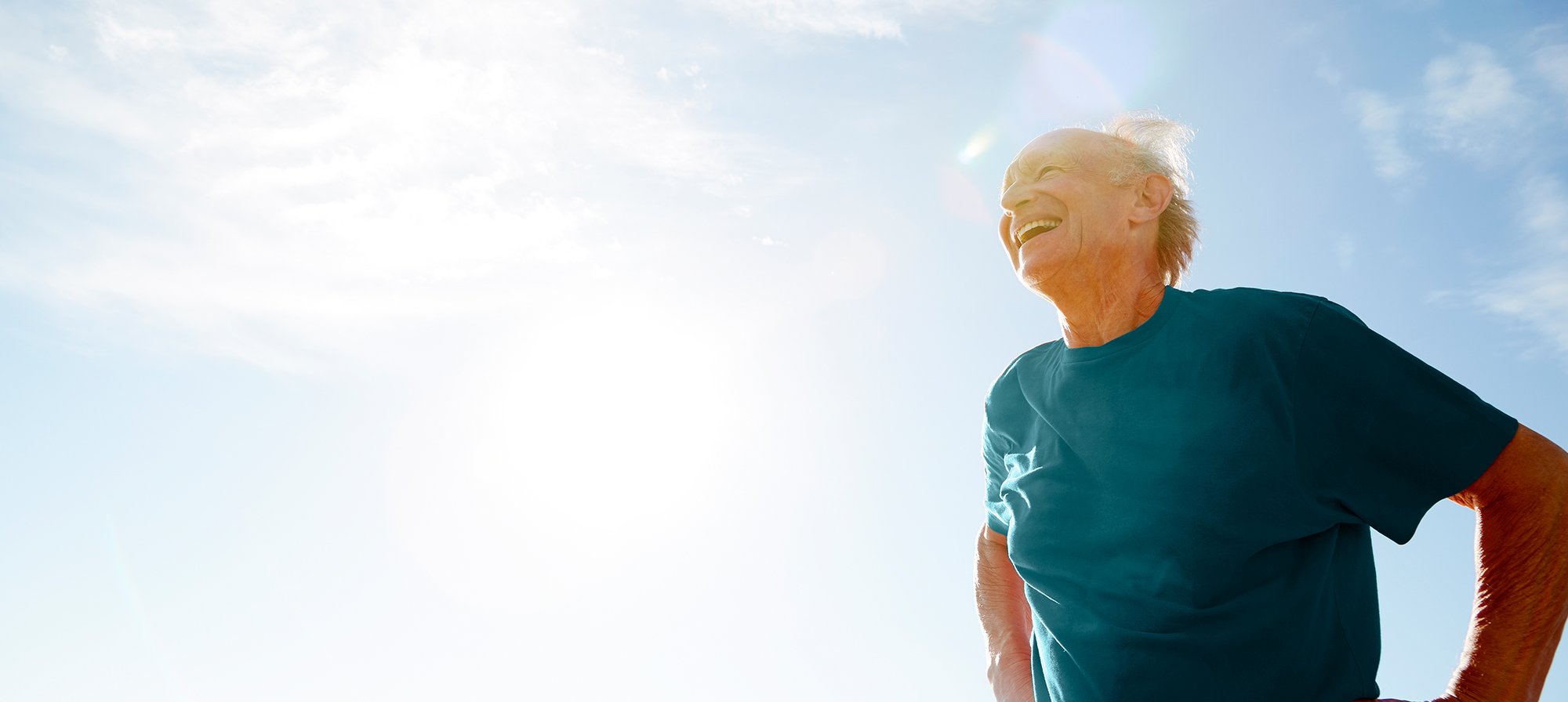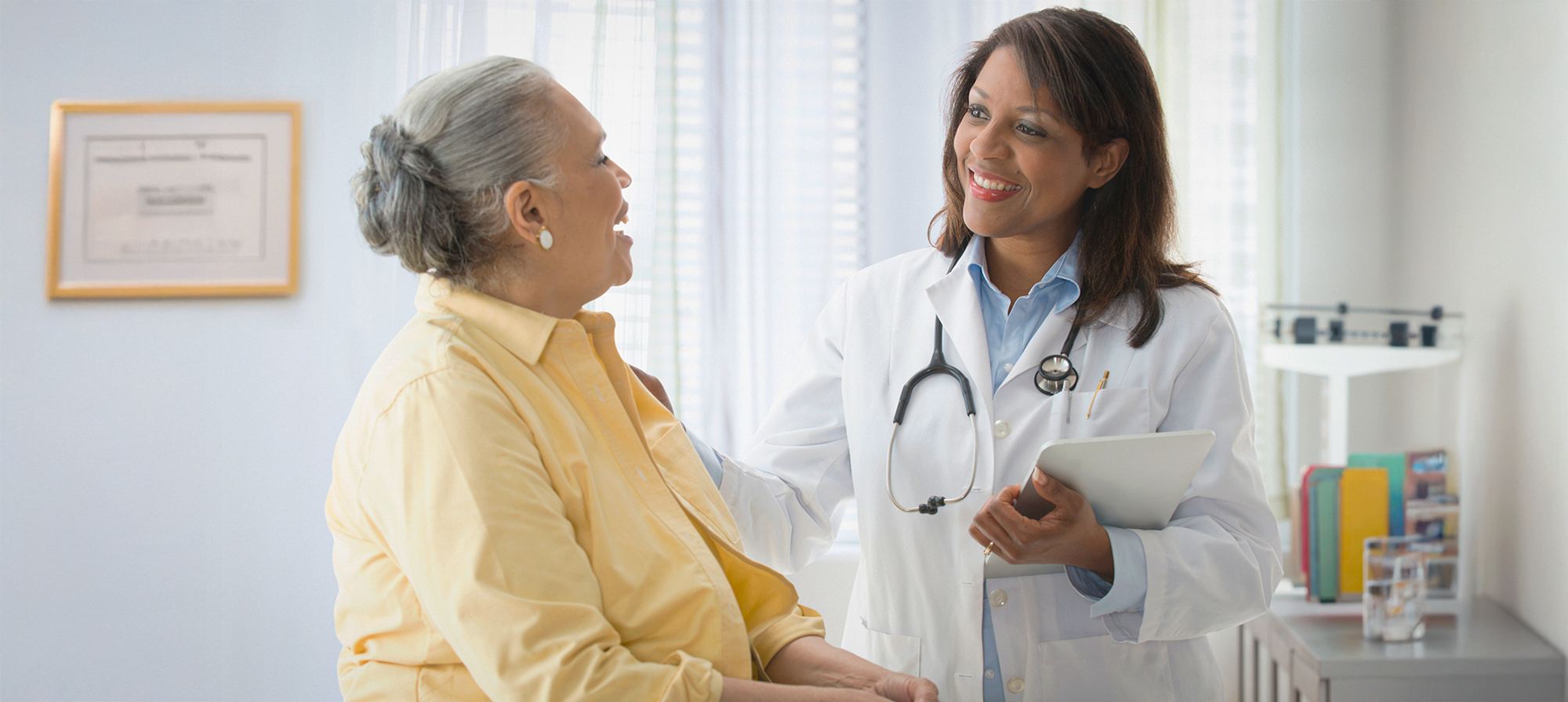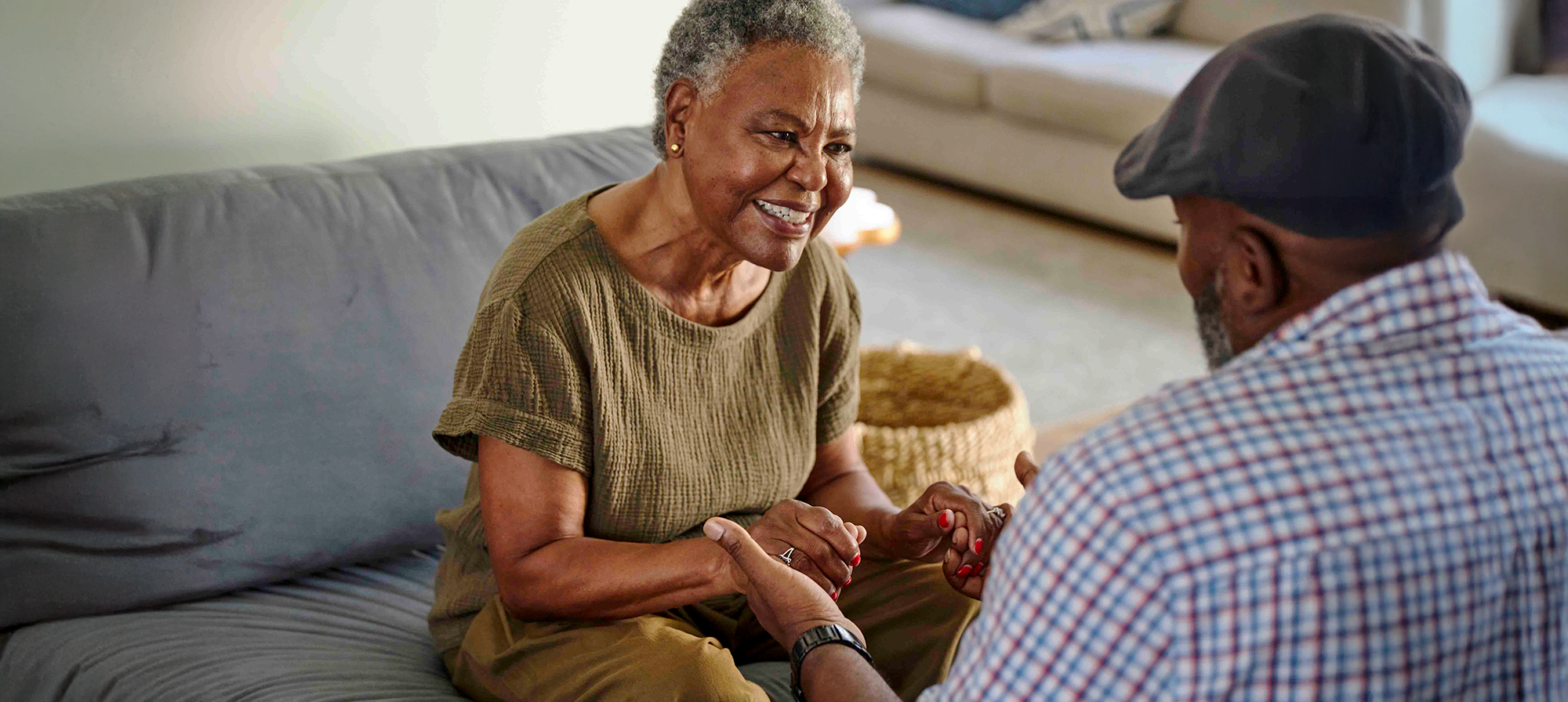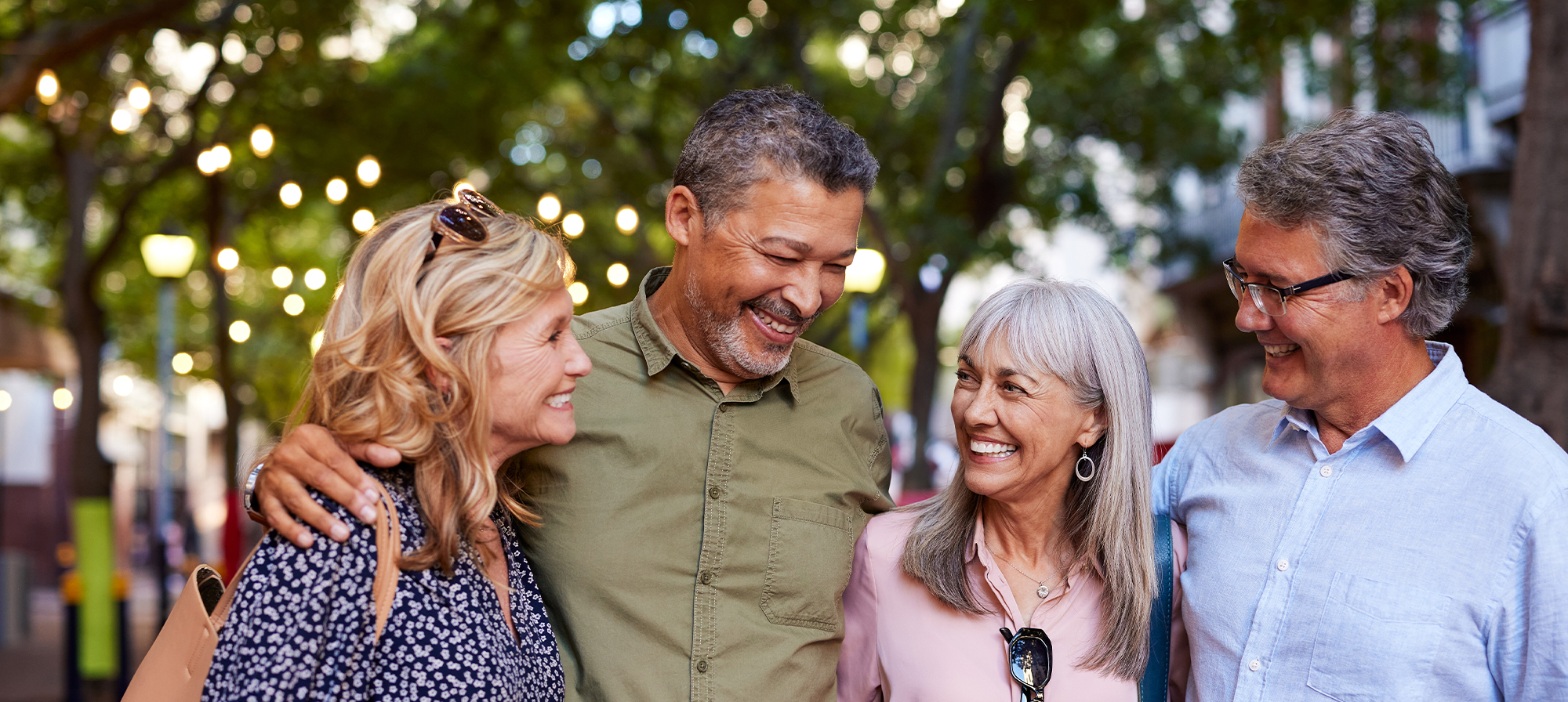You know that wonderful feeling you get when you step into the bright morning sun? Well, turns out it's more than just a good feeling—it’s good for your health, too.
Letting the bright morning sun shine down on you may have some pretty positive effects on your health. Early morning sun can help kickstart your day in the right way. It triggers the production of cortisol, which helps wake you up. It can impact your mood and your internal body clock, as well as help with hormone regulation. Exposing yourself to sunlight in the morning may even help you get restful sleep at night.
Here’s how making time for a dose of morning sunlight can help make all that happen.
Morning sun helps regulate your circadian rhythm
For starters, exposure to morning light plays a big role in properly setting your circadian rhythm. Your circadian rhythm is your body’s natural, internal clock.
It's thought that getting that burst of morning sunlight can help kickstart this clock. Doing so ensures your body stays synchronized with the natural day–night cycle. And the more consistently you help keep your body clock in sync, the better you’re going to feel. It helps your body know when to fall asleep and when to wake up.
When your internal clock is running smoothly, you may not think twice about it—or ever at all. But when your body clock is out of order, it can cause all kinds of havoc, including insomnia, early waking, and more. And that can start to affect your energy levels and overall well-being.
 Morning sun boosts mood and mental health
Morning sun boosts mood and mental health
Exposure to bright morning sunlight also triggers serotonin production . Serotonin is a chemical that carries messages between cells in your brain and elsewhere in the body. It’s thought to contribute to feelings of well-being and happiness.
It should come as no surprise then that higher levels of serotonin are thought to help you feel more positive and alert throughout the day. Serotonin also plays a role in other important bodily functions, including digestion, sleep, wound healing, and more.
On the flip side, low levels of serotonin have been linked to depression, anxiety, poor sleep, and other issues.
Learn how getting outside for a dose of nature can also boost your mental health.

Morning sun promotes quality sleep
The hormone melatonin plays a lot of different roles in the body. But one of its more well-known jobs is helping your body prepare for sleep. Your body produces melatonin when the sun goes down, then suppresses it once you’ve been exposed to morning sunlight. This signals that it’s time to be awake and more alert. In turn, once nighttime hits again, your body tends to more easily enter into a sleepy state.
In one study, participants who were exposed to more sunlight in the early morning hours (between 8 a.m. and noon) reported that they fell asleep more quickly at night and had fewer periods of waking during the night compared to those exposed to little or no light in the morning.
If you are getting a daily dose of morning sun, but sleep continues to elude you, here are 2 other tips that may help alleviate your insomnia.

Sunlight spurs vitamin D production
One of the most amazing things sunshine can do is help your body make vitamin D. When you spend time in the sun, UVB rays convert certain types of cholesterol in your skin cells into this much-needed vitamin.
This “sunshine vitamin” is a crucial nutrient that a lot of people simply don’t get enough of. A big reason it’s so important is because it absorbs and retains calcium and phosphorous—both of which are vital for building and maintaining strong, healthy bones.
When you’re short on vitamin D, it can increase your chance of developing osteoporosis. This can be a big problem for older adults. Weaker, thinner bones mean that even a minor fall can become a big problem. Besides the risk of weaker bones, low levels of D may also cause fatigue, depression, or a weakened immune system.
You can get vitamin D from certain foods, but it’s not easy to get enough from food alone. And even though vitamin D supplements can help, the jury is still out on whether supplements alone can help you get the amount of vitamin D you need.
Of course, if you live in a region with short daylight hours in the winter, you may not be able to get enough vitamin D from sunlight alone. In that case, supplements may help. Have a talk with your doctor about the best option for you.
Being cautious in the sun
It is, of course, important to be careful about how much time you spend in direct sunlight. Too much intense sun too often can damage your skin and even lead to skin cancer.
However, to get the benefits of vitamin D, the sun’s UV rays need to come in contact with your skin. Just 10 to 15 minutes at a time, a few days a week, should be enough to soak in good levels of the sunshine vitamin.
If you’re in the sun any longer than that, be sure to cover up or apply a sunscreen of SPF 15 or higher.

Overcoming short winter days with artificial light therapy
The farther north you live, the more likely it is you don’t actually see much morning sunlight during the winter months. If you live in one of these regions, you may need to get creative to see the benefits of sunlight.
That lack of sunlight in winter months can also affect some of those other benefits normally found from it. Things like your circadian rhythm and the production of melatonin and serotonin may be thrown off. When that happens, the chance of seasonal affective disorder (SAD) may be greater. That can have a profound effect on your mood and overall well-being.
One way you may be able to battle the lack of natural sunlight is with an artificial sun lamp—or “light box.”
A light box works by mimicking outdoor light. Instead of soaking in the natural sunlight in the morning, you would expose yourself to the light box within the first hour of waking in the morning for about 20 to 30 minutes.
Some studies suggest that using these types of lights may actually help with seasonal depression. However, light boxes are not regulated by the United States Food and Drug Administration (FDA). If you are seeking a true light therapy lamp, you may want to talk with your doctor first. They can help you decide if it’s right for you.
Other tips for getting morning sunlight
Sometimes it’s hard to muster up the energy to shuffle out of a warm bed, but it’s worth it! Here are a few ideas
- Open your bedroom curtains and let the sun beams shine in every morning.
- Have your morning coffee or tea outside in direct sunlight or in front of a sunny window.
- Take a short (or long!) walk around your neighborhood each morning.
What are some other ways you can get the benefits of the warm morning sun? Once you find something enjoyable that works for you, make it a healthy habit by turning it into a regular part of each day.
There’s no doubt that soaking up the warm rays of the morning sun is a wonderful sensation. And yet, it can be easy to let the morning pass you by without even stepping outside. In today’s world, there are so many ways to get sidetracked with indoor activities. So, try not to forget just how beneficial our sun truly is. Take the time to get outside this morning and bask in the glow of one of nature’s greatest gifts. You’ll be thankful you did.

Not a Silver&Fit member? Learn more about everything the program has to offer, including more helpful healthy living tips like this, here on our website.
This information is not intended to take the place of regular medical care or advice. Please check with your doctor before using this information or beginning any self-care program. Images used for this article do not depict any members of the Silver&Fit Program.
References
Blume, C., Garbazza, C., & Spitschan, M. (2019). Effects of light on human circadian rhythms, sleep and mood. Sleep Research and Sleep Medicine, 23(3), 147–156. https://doi.org/10.1007/s11818-019-00215-x
Burns, A. C., Saxena, R., Vetter, C., Phillips, A. J. K., Lane, J. M., & Cain, S. W. (2021). Time spent in outdoor light is associated with mood, sleep, and circadian rhythm-related outcomes: A cross-sectional and longitudinal study in over 400,000 UK Biobank participants. Journal of Affective Disorders, 295, 347–352. https://doi.org/10.1016/j.jad.2021.08.056
Cleveland Clinic. (2022, July 5). Melatonin. https://my.clevelandclinic.org/health/articles/23411-melatonin
Cleveland Clinic. (2022, March 18). Serotonin. https://my.clevelandclinic.org/health/articles/22572-serotonin
Gao, Q., Kou, T., Zhuang, B., Ren, Y., Dong, X., & Wang, Q. (2018). The association between vitamin d deficiency and sleep disorders: A systematic review and meta-analysis. Nutrients, 10(10), 1395. https://doi.org/10.3390/nu10101395
Mayo Clinic. (2022, March 30). Seasonal affective disorder treatment: Choosing a light box. https://www.mayoclinic.org/diseases-conditions/seasonal-affective-disorder/in-depth/seasonal-affective-disorder-treatment/art-20048298
Mead M. N. (2008). Benefits of sunlight: a bright spot for human health. Environmental Health Perspectives, 116(4), A160–A167. https://doi.org/10.1289/ehp.116-a160
National Institutes of Health. (2023, September 18). Vitamin D. https://ods.od.nih.gov/factsheets/VitaminD-HealthProfessional/
United States Environmental Protection Agency. (2023, July 6). Ultraviolet (UV) radiation and sun exposure. https://www.epa.gov/radtown/ultraviolet-uv-radiation-and-sun-exposure
World Health Organization. (n.d.) Ultraviolet radiation. https://www.who.int/health-topics/ultraviolet-radiation#tab=tab_1
Yale School of Medicine, Psychiatry. (n.d.). How should I obtain a light box? https://medicine.yale.edu/psychiatry/research/programs/clinical_people/winter/obtain/
This article was written by Jason Nielsen, edited by Gail Olson, and clinically reviewed by Elizabeth Thompson, MPH, RDN on December 12, 2023.





